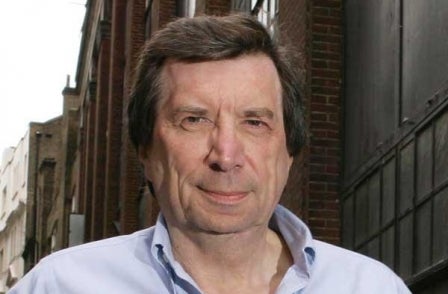
-
Solution to national press problems is 'obvious', says Leigh
-
Scheme would raise more than £500m annually
-
The Sun would collect £50m a year
Guardian executive investigations editor David Leigh has suggested a £2 a month broadband levy should be imposed on all households to save newspapers from the effect of falling print circulations.
Leigh said the idea came to him after reading the latest National Readership Survey figures, when he realised there was “in existence a perfectly easy way to rescue newspapers, ensure media plurality, and monetise the web”.
Writing in The Guardian, Leigh said that “arithmetically speaking at least, the British solution is obvious”, adding: “Consumers won't pay for online news. But they are of course paying, now and for the foreseeable future, and in huge numbers, for the necessary broadband connections.
“A small levy on UK broadband providers – no more than £2 a month on each subscriber's bill – could be distributed to news providers in proportion to their UK online readership.
“This would solve the financial problems of quality newspapers, whose readers are not disappearing, but simply migrating online.
“There are almost 20m UK households that are paying upwards of £15 a month for a good broadband connection, plus another 5m mobile internet subscriptions.”
Leigh claimed the levy – collected from the likes of BT, Virgin, Sky and TalkTalk etc – would raise more than £500m annually and provide “transformative chunks of money to the most popular news websites”.
The Telegraph group, the Associated Newspapers' stable and Guardian Media Group would each receive around 20 per cent of the cash, or £100m a year, while The Independent stable of papers would receive around £40m a year.
Smaller titles like The Scotsman and the Yorkshire Post would receive a “potentially life-supporting transfusion of £8m and £4m respectively”, according to Leigh.
The Sun (still highly profitable) would collect an annual £50m while loss-making Times titles would receive “relatively little” because they were behind a paywall.
“News providers” would be defined as those organisations already classed by the state as zero-rated newspapers under the 1994 VAT legislation, while “other original news providers could subsequently apply to the independent levy board for admission to the scheme, case-by-case”, said Leigh.
“But there would have to be a reasonable size threshold for admission, perhaps set at 100,000 monthly users, and also some rules to exclude content aggregators. The BBC website would not get any extra cash from the levy, as it is already financed by the British taxpayer.
"Is this solution too politically fraught? The first party to adopt such a levy scheme will certainly get my future vote. The levy would, like the BBC, be operationally ring-fenced against "state intervention", although it might well be subject to the same long-term political tensions as the BBC licence fee.
"That licence fee system still works more or less successfully, of course, just as the more extreme Nordic model of direct newspaper subsidy does. And perhaps we don't need to worry too much about the long term. For in the long term, all the newspapers might otherwise be dead."
Email pged@pressgazette.co.uk to point out mistakes, provide story tips or send in a letter for publication on our "Letters Page" blog
